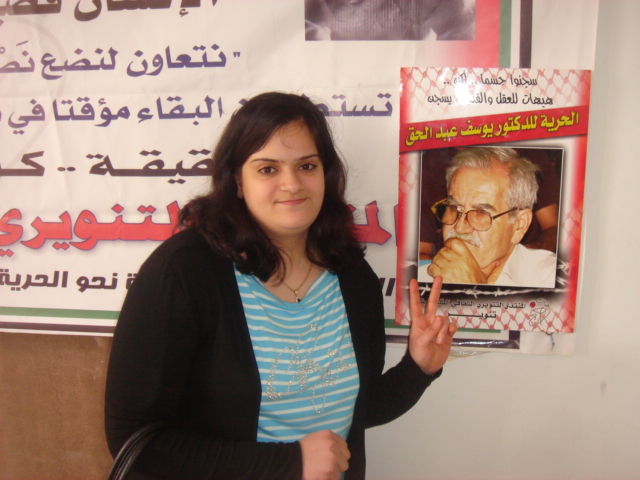Tag: Administrative Detention
-
Thaer Halahleh: “My Beloved Lamar…Forgive me”
13 May 2012 “My Beloved Lamar, forgive me because the occupation took me away from you, and took away from me the pleasure of witnessing my firstborn child that I have always prayed to God to see, to kiss, to be happy with. It is not your fault; this is our destiny as Palestinian people…
-
Balata Refugee Camp: The toll of human rights violations and imprisonment
by Alex 9 May 2012 | International Solidarity Movement, West Bank The 9th May marks the 22nd day of the Palestinian prisoners mass hunger strike. Today as with every day, the prisoners’ families and friends met at Nablus Prisoners’ tent in a show of solidarity, paying respect to their sons, brothers, daughters and sisters suffering…
-
The price of intellectual resistance
by Sylvia 14 April 2012 | International Solidarity Movement, West Bank “Our souls are not devastated, we are hanging on” On the 7th November 2011, founder of the Palestinian Cultural Enlightenment (Tanwer) and lecturer at the An- Najah University, Dr. Yousef Abdul Haq, was arrested from his home at two o’clock in the morning. Dr. Yousef…

